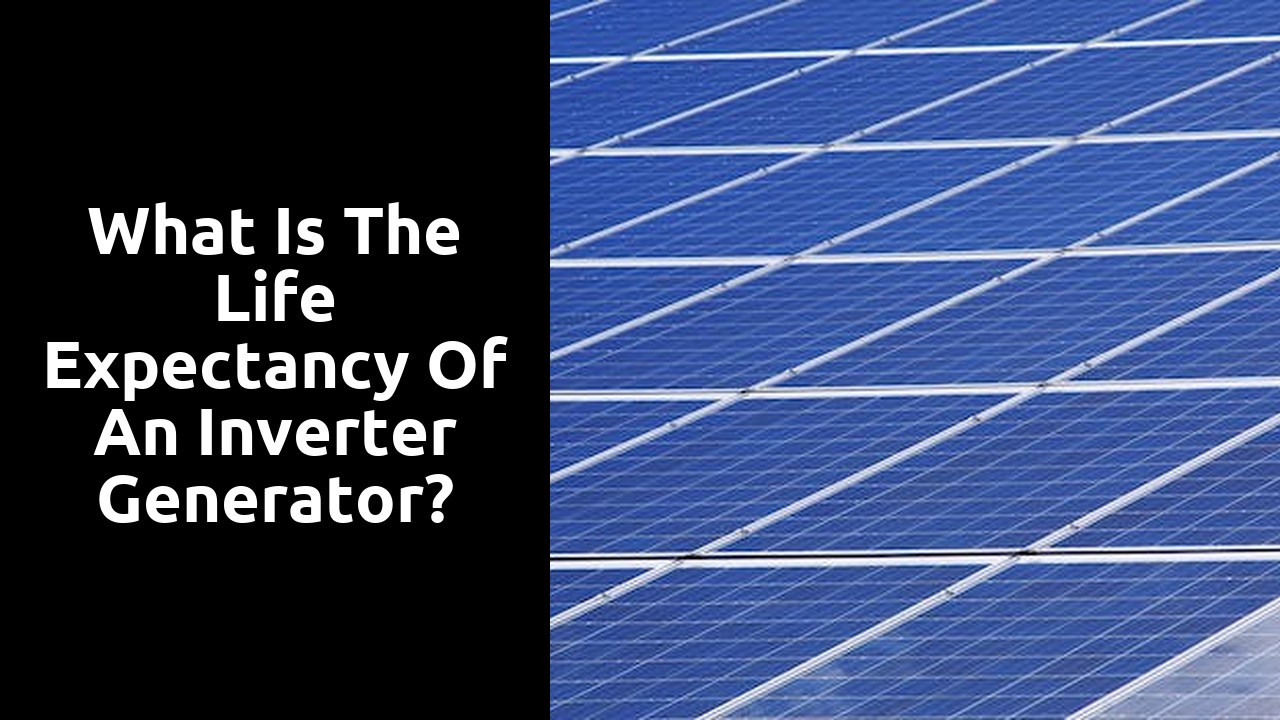What is the life expectancy of an inverter generator?

Inverter generators have a life expectancy of around 10-12 years. This is due to the fact that inverter generators are built to last and are built to handle a lot of wear and tear. They are also built with quality materials that will not break down easily.
Definition of an inverter generator
An inverter generator is a type of generator that uses an electronic control system to convert direct current (DC) into alternating current (AC). The life expectancy of an inverter generator is typically much longer than a standard generator because the inverter generator does not require regular maintenance.
Overview of life expectancy
The life expectancy of an inverter generator is typically around 10-12 years. This is due to the high amount of wear and tear that inverter generators experience.
Factors Affecting Life Expectancy
There are many factors that affect life expectancy, but the life expectancy of an inverter generator is typically around 20 years. This is because inverter generators are designed to run continuously and are not as susceptible to wear and tear as other types of generators.
Quality of the Generator
When it comes to inverter generators, there are a few things to keep in mind. First, the quality of the generator is important. Make sure to choose a quality inverter generator that has a long life expectancy. Second, be aware of the size of the generator. Make sure to choose a generator that is the right size for your needs.
Maintenance
Inverter generators are typically designed to operate for around 10,000 hours or more. While there is no set life expectancy, most inverter generators are designed to last much longer than typical household appliances.
Usage
Usage:Inverter generators are used to power homes and businesses. They are typically used in areas with unreliable or expensive power sources. Inverter generators have a life expectancy of around 10-15 years.
Average Life Expectancy
The average life expectancy of an inverter generator is around 10-12 years. This is due to the fact that inverter generators are more susceptible to wear and tear than other types of generators.
Inverter Generators vs. Traditional Generators
Inverter generators are typically more expensive to purchase than traditional generators, but they have a longer life expectancy. They are also more efficient, meaning they use less fuel to produce the same amount of power.
Average Life Expectancy of Inverter Generators
The average life expectancy of inverter generators is around 10-12 years. This is due to the fact that inverter generators are built with high quality components and are subject to regular maintenance.
Inverter generators are a great option for those who are looking for a reliable power source. They have a life expectancy of around 10-12 years, which is considerably longer than other types of generators.
Summary of Factors Affecting Life Expectancy
There are a number of factors that affect an individual's life expectancy, including age, sex, and health conditions. However, the life expectancy of an inverter generator is largely dependent on the quality of the unit and how it is maintained. In general, inverter generators that are of high quality and maintained properly can last for many years.
Summary of Average Life Expectancy
The average life expectancy of an inverter generator is around 10-12 years. This is due to the fact that inverter generators are more susceptible to wear and tear than other types of generators.
Tips for Extending Life Expectancy
There are many things you can do to extend your life expectancy, but the most important thing is to stay healthy. One way to stay healthy is to use an inverter generator. Inverter generators use less fuel than traditional generators, so they can help reduce your carbon footprint. Inverter generators also have a longer life expectancy than traditional generators.
Related Links
Can an inverter generator run a house?Is a Wen generator a good generator?